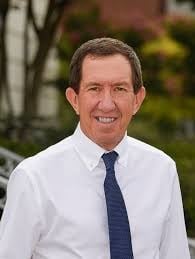Nearly 80% of medical students say they are burned out.
Most (54%) say they sometimes experience burnout, but 1 in 5 medical students say it is almost always present, according to a survey by Medscape.
The survey of more than 2,400 medical students found they ranked stress and work/life balance as their biggest medical school challenges, and nearly half said they have considered leaving medical school.
While the survey paints a somewhat bleak picture of life for medical school students, Robert Centor, M.D., the former regional dean of UAB Medicine, Huntsville, said it depends on your perspective.
“Medical school has always been difficult,” Centor, who retired in 2016 after 12 years as regional dean at the Alabama campus and a long career as a professor of medicine, told FierceHealthcare.

(Courtesy of Medscape)
But he says the rate of burnout is the most concerning of the survey findings and he says medical school does not have to be as hard as it is.
“A lot of students really have invested a lot of money and it does come into play,” he says, about the pressure they feel to keep going and be successful in medical school.
RELATED: Which kind of doctors experience dramatically lower levels of burnout? Study offers new perspective
But some of the difficulty is unlikely to change. “Medical school is stressful. You have a lot to learn,” he says. The competition is stiff and there is the stress of passing tests that first year. Students work long hours and sometimes aren’t given the respect they deserve.
And of course, burnout isn’t just a problem for medical school students. Studies have found that 50% of doctors experience symptoms of burnout.
As for students who say dealing with stress and finding a work/life balance are big challenges, that’s not likely to change, he says. “It will be a bigger challenge in residency and a bigger challenge in their career,” he says. But it’s not unlike the pressure on other professionals, such as lawyers, who are always stretched by the demands of their careers, he adds.
On the other hand, a low percentage of students (6% of women and 4% of men) said they have inadequate emotional support to handle the challenges of medical school.
Particularly encouraging for Centor are the reasons why students say they choose to go to medical school. The number one reason influencing their decision (84% for females, 83% for males) is the desire to help those in need, followed by an interest in science and feeling a “call” to medicine.
“Most people go to medical school for the right reasons. That’s what I found in my medical school,” he said. “Most students want to help people. It’s not about prestige.”
Also adding to students’ stress is the amount of debt many will face for their medical education. Almost half of the respondents (45%) will graduate with more than $200,000 in debt, although approximately 1 in 10 say they’ll graduate without any debt.
Centor says he’ll be watching to see what happens at the NYU School of Medicine, which announced last month that it will cover the tuition for all its medical school students regardless of their financial need—a first among the country’s major medical schools. “It will be really interesting to see if those students will be less burned out,” he says.